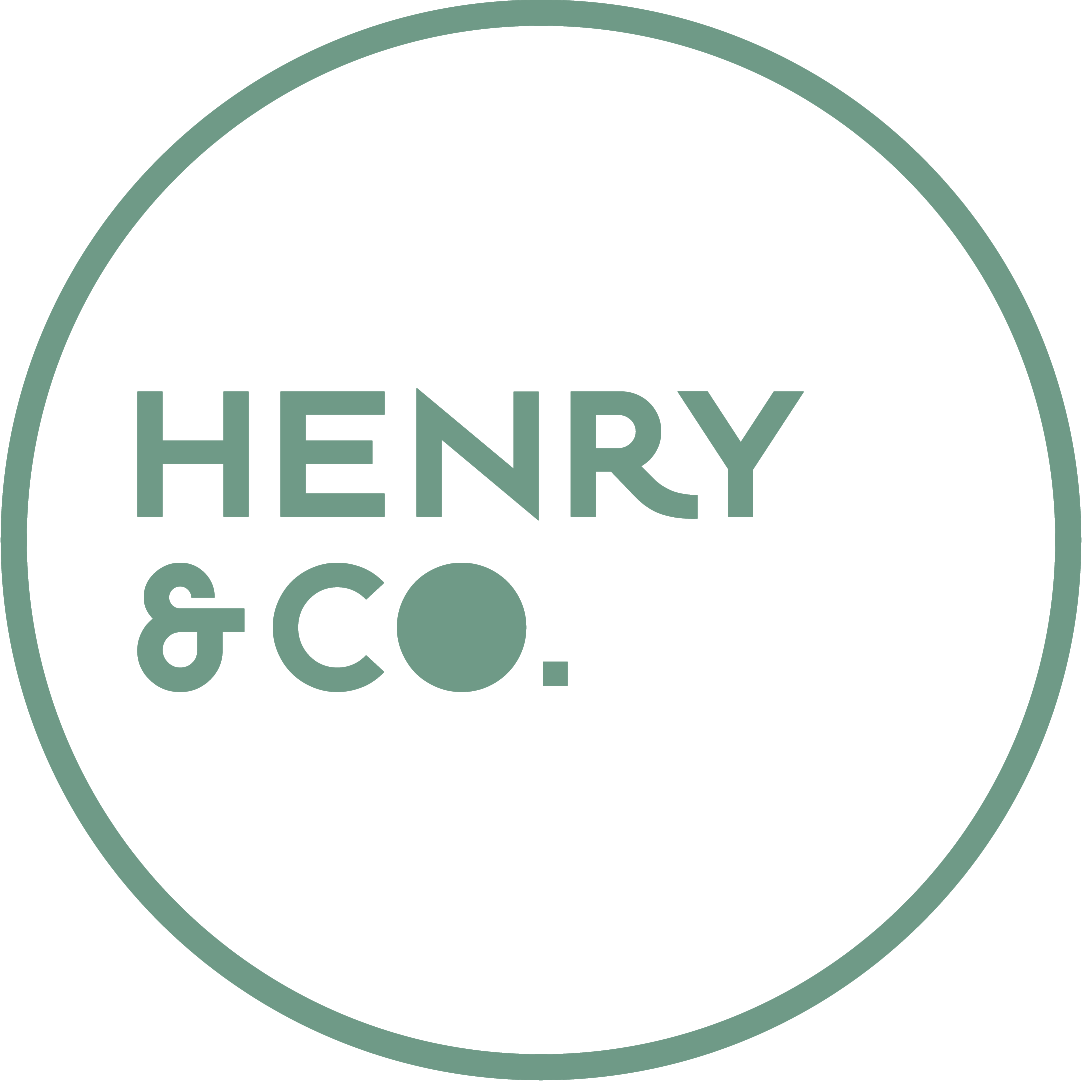A corporate sustainability consultation is the first tool companies need to integrate the principles of the circular economy into their business. This makes it possible to make sustainability a structural constant by seizing growth opportunities, the chance to rethink products and services with an innovative perspective, and meeting the preferences of consumers who are increasingly seeking sustainable goods and services.
But what does a sustainability consultation consist of? Can it help companies rethink their offerings, especially for the services they provide? And what are successful examples of sustainable services?
1. Do companies need consultation and sustainability to serve their design?
A consultation focused on circular economy is the first step for companies towards fully integrating sustainability into their business model. By becoming aware of their environmental, social, and economic impacts, companies can reconfigure themselves and the offerings they present to the market.
If products (and the processes for their realization) are the primary focus, services (though intangible and thus generally considered less impactful on the environment) can also become sustainable if built on circular principles. A sustainability consultation can therefore represent the starting point for creating or redesigning offered services in a sustainable way.
1.1. Difference between service design and sustainability consultation
Service design refers to a method of designing with low incidence from an environmental, social, and economic point of view. By offering such defined and structured services, companies meet consumer needs in sustainable and ethical ways, aligned with circularity and nature conservation.
The foundations of sustainable services stem from the practices and principles of the circular economy, such as borrowing, reuse, repair, recycling, etc.
However, an initial phase of consultation is necessary to approach sustainability.
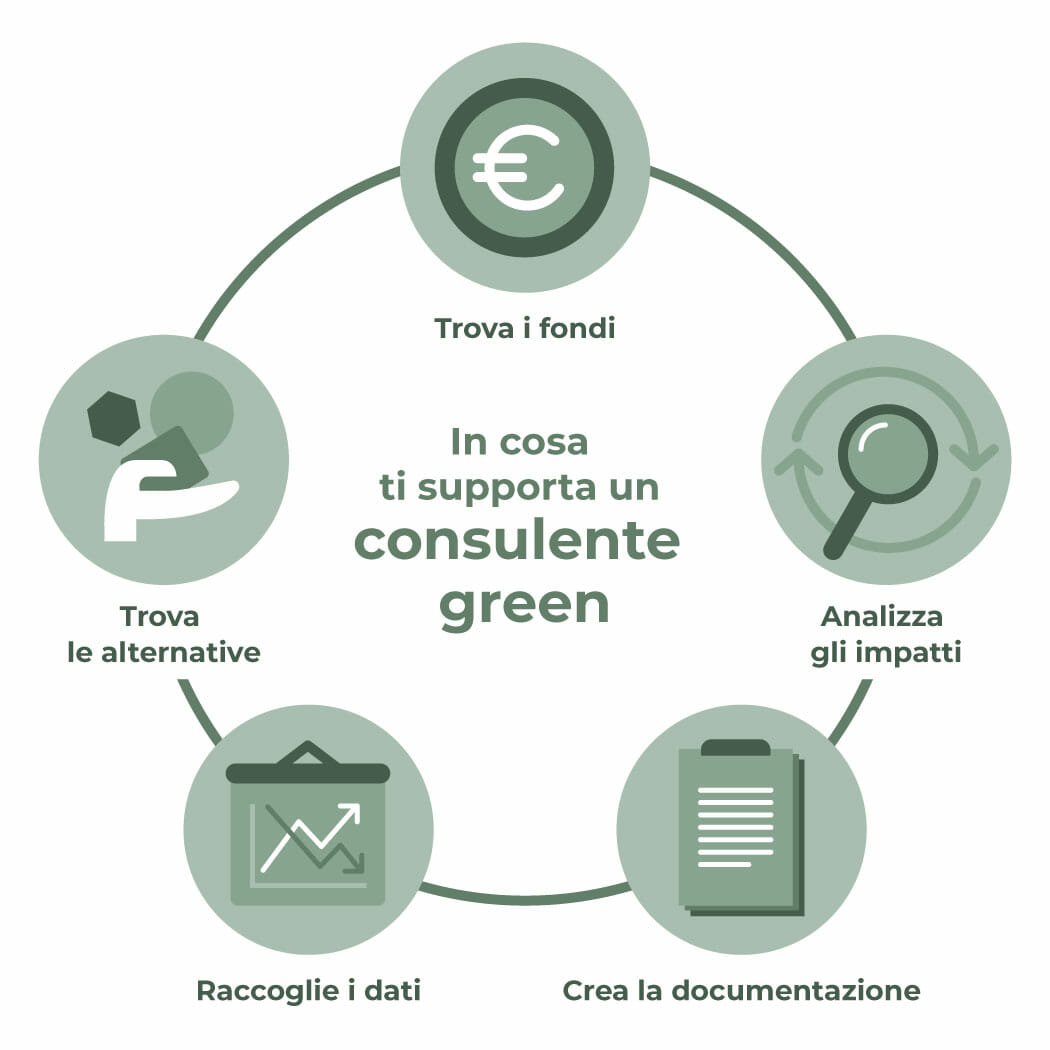
Turning to a sustainability consultant for a preparatory and analytical phase can provide an opportunity to identify new possibilities. An initial consultation primarily serves to:
- Analyze the environmental and social impact of the business
- Prepare specific certification documentation
- Gather data for sustainability reporting and balance sheets
- Find alternative energy sources
- Locate funding to support the project.
1.2. Opportunities for companies offering sustainable services
For companies, the benefits of offering sustainable services are:
- Ability to adapt to changing markets driven by consumers and institutions focused on issues like sustainability and circularity;
- Potential to extend the relationship with customers over time (for example by associating a repair service with a product purchase);
- Improvement of the sustainability of their offering, even in terms of product design, so that products are easily repairable, reusable, etc.;
- Reduction of their environmental impact and promotion of sustainable consumption models, contributing to the transition to circular economy models;
- Improvement of corporate image and credibility by acting proactively in the contexts in which they operate (have you read our article on the impact of sustainability on corporate image?);
- Greater innovation ability and capacity to capitalize on opportunities derived from a non-superficial approach to sustainability.
2. What are the operational steps of consulting and sustainable service design?
Corporate sustainability consulting helps identify the opportunities offered by circularity for the design and implementation of services. Below are the nine operational steps involved in a sustainability project, from consultation to design.

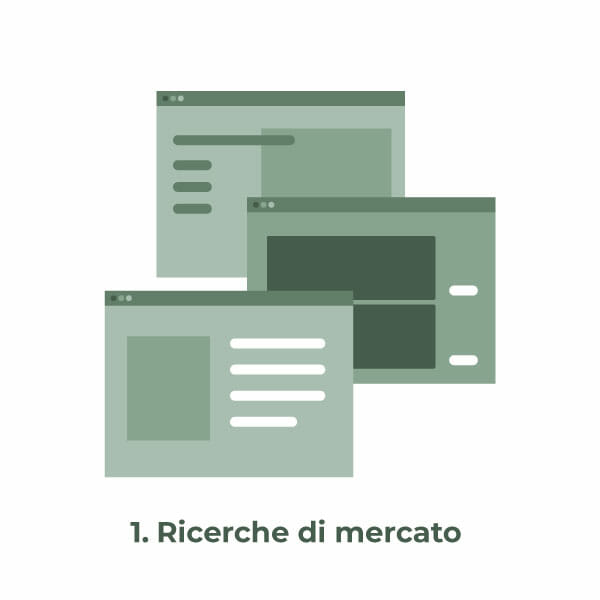
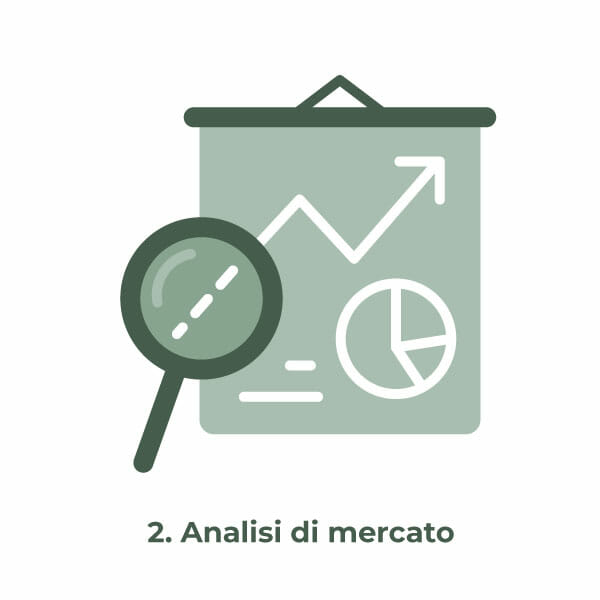
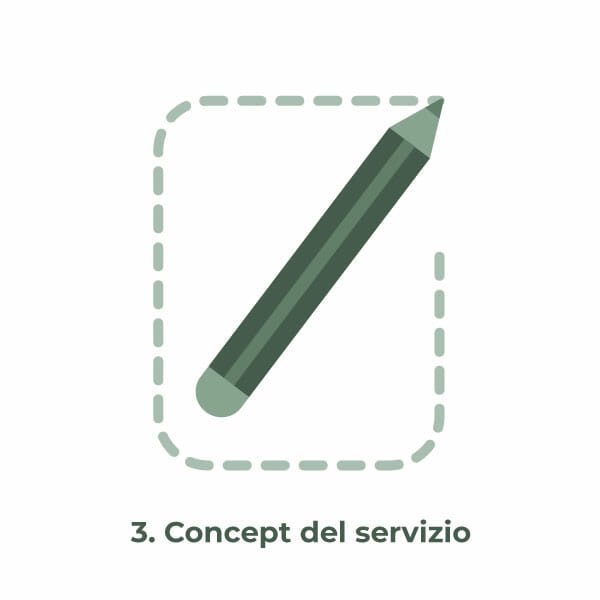
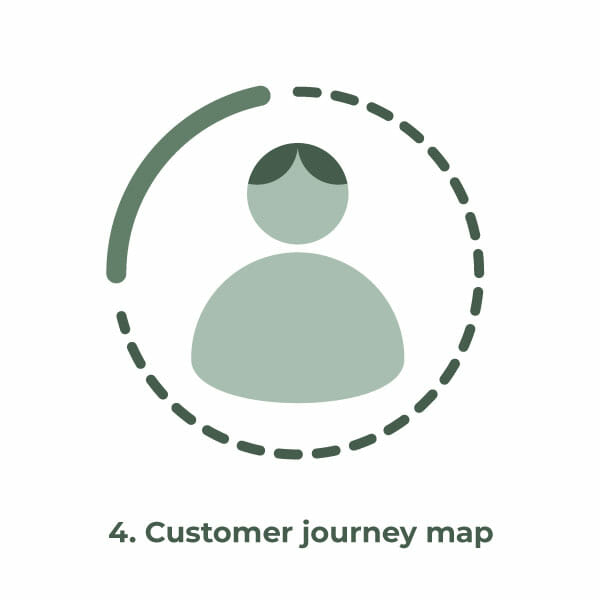
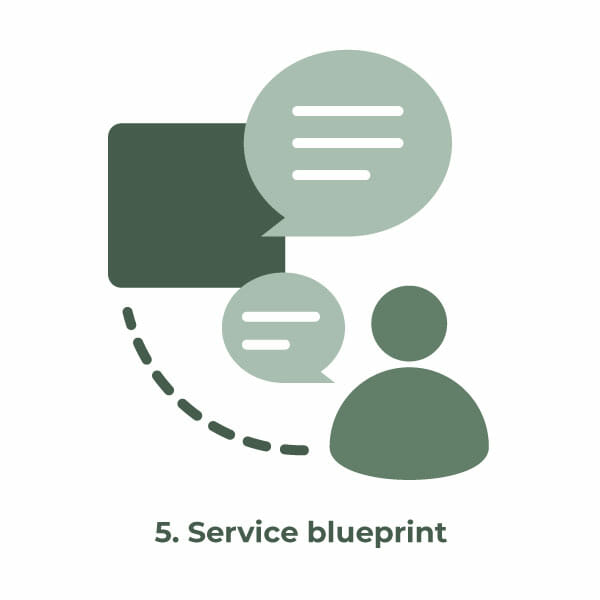

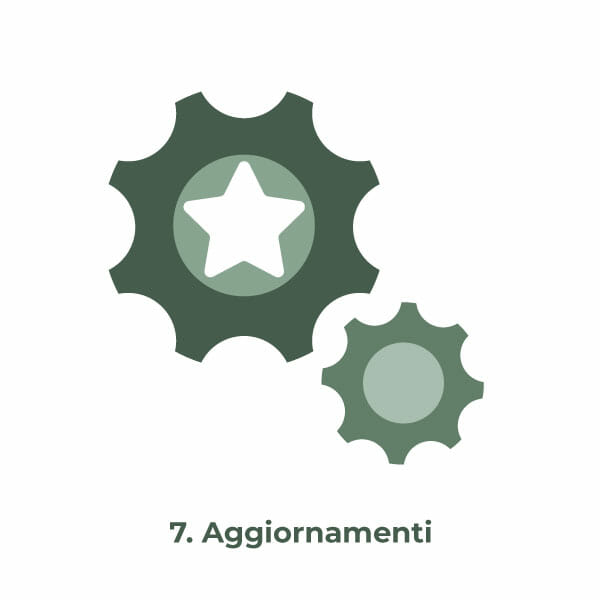
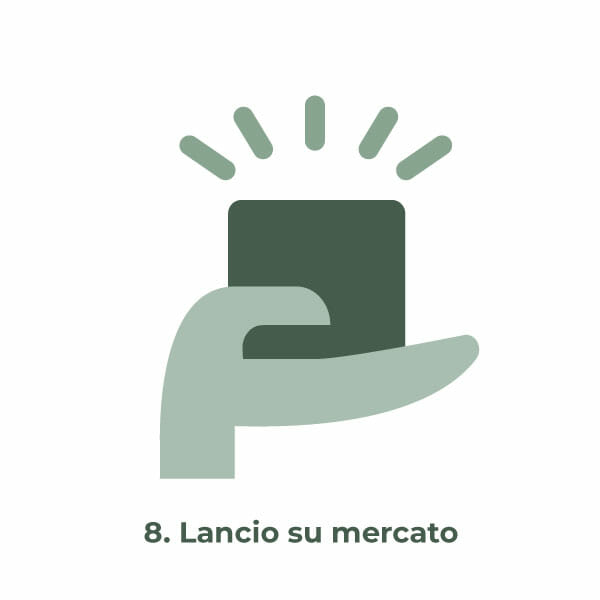
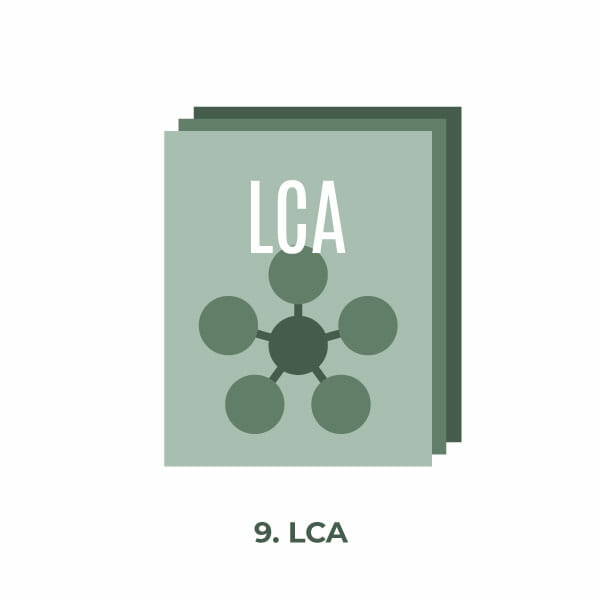
- Market research aimed at understanding the context, identifying consumer needs and trends, and spotting opportunities for service innovation.
- Market analysis to study competitors, market trends, and consumers, and assess challenges and opportunities in the service sector.
- Service concept, meaning the phase of defining and creating an innovative service that guarantees positive experiences based on the findings from previous phases.
- Visualization of Customer Journey Maps of the service, showing the progression of customer interactions across touchpoints with the new service to identify strengths and weaknesses and optimize the resulting experience.
- Development of the Service Blueprint to analytically describe processes, interactions, and touchpoints between staff and customers during service delivery, with the goal of improving efficiency and quality.
- Pilot testing of the service on a sample of customers to assess its effectiveness, gather feedback, and make any necessary adjustments to perfect it before the official launch.
- Service updates and upgrades to ensure it remains effective and aligned with consumer needs through continuous monitoring and identification of new innovation opportunities.
- Planning the service launch to the market, including marketing and communication strategies to maximize visibility and adoption by customers.
- Using the LCA (life cycle assessment) methodology to evaluate the environmental impact of the service throughout its entire life cycle, ensuring the overall impact is minimized and promoting sustainability.
3. Sustainability consulting: who to contact for the creation of sustainable services?
Given the increasing attention to topics like circularity from consumers and institutions, integrating sustainability and leveraging the opportunities for innovation and growth represents a significant opportunity for companies.
HENRY & CO. helps you bring your offering to life, managing both internal and external communication regarding the sustainability values of your business and redesigning processes with a circular perspective. Contact us now!
